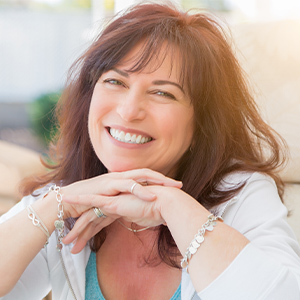
What does vision look like with cataracts?
Cataracts are a common eye condition that predominantly affects individuals over the age of 60, although they can occur at younger ages under certain circumstances. Characterised by the clouding of the eye’s natural lens, cataracts develop gradually and can significantly impact the quality of one’s vision and, consequently, their quality of life. Understanding how vision changes with cataracts can help individuals recognise the need for assessment and possible treatment.
Understanding Cataracts
The eye’s lens is naturally clear and works much like a camera lens, focusing light onto the retina at the back of the eye to produce sharp images. As we age, proteins in the lens can clump together, forming opaque clusters that gradually enlarge and cloud the lens. This clouding is what we refer to as cataracts, and it prevents the lens from transmitting clear images to the retina, leading to blurred or hazy vision.
Symptoms of Cataracts
The experience of having cataracts can vary from person to person, but common symptoms include:
- Blurred Vision: One of the first signs of cataracts is a slight blurriness in sight, similar to looking through a foggy window. This can make it difficult to read, drive, or see facial expressions clearly.
- Glare and Halos: Increased sensitivity to light is common with cataracts. Individuals may notice halos around lights or find it increasingly difficult to see in very bright or very low light.
- Dulled Colours: Cataracts can also cause colours to appear faded or yellowed, reducing the vibrancy of the visual world.
- Double Vision: In some cases, cataracts can cause double vision when looking with one eye, making it challenging to perform daily tasks that require sharp focus.
- Frequent Changes in Glasses Prescription: A frequent need to update your glasses prescriptions can be a sign of progressing cataracts.
What Vision Looks Like with Cataracts
To imagine what vision with cataracts might look like, think of viewing the world through a lens smeared with grease. Details become soft and colours less vivid. At night, vision might be particularly impaired by halos around lights, complicating driving or navigating in low-light conditions.
Over time, as cataracts mature, the clouding becomes more severe, and vision may become increasingly obscured, making it difficult to carry out daily activities and significantly impacting independence.
The Impact on Daily Life
The gradual loss of clear vision can affect various aspects of daily life including:
- Reading and Writing: Difficulty in seeing fine print or bright screens.
- Driving: Challenges in driving, especially at night, due to glare and reduced contrast sensitivity.
- Personal Safety: Increased risk of falls or accidents due to poor vision.
- Social Interaction: Difficulty in recognizing faces and expressions can lead to social withdrawal.
Diagnosis and Treatment
Diagnosing cataracts involves a simple eye examination by an eye care professional. They will assess the cloudiness of the lens, along with other eye health checks. While early symptoms can be managed with stronger lighting and glasses, the only effective treatment for advanced cataracts is surgery. This procedure involves removing the cloudy lens and replacing it with a clear, artificial lens.
Living with Cataracts
While waiting for or deciding on treatment, there are several strategies to manage the symptoms of cataracts:
- Use Brighter Lights: Enhancing home lighting can help mitigate the dulling effects of cataracts.
- Wear Anti-Glare Sunglasses: These can reduce the sensitivity to bright lights and halos.
- Use Magnifying Aids: For reading and other close-up work, magnifying devices can help alleviate the effects of blurred vision.
Benefits of Cataract Surgery
Cataract surgery is one of the most common and successful medical procedures performed worldwide, offering a safe and effective way to restore vision. The benefits of undergoing cataract surgery are significant and life-changing. Most patients experience a dramatic improvement in visual clarity, allowing them to see details sharply and colours vividly once again. This improvement can lead to a better quality of life, with enhanced independence and safety.
Additionally, many patients find that they rely less on prescription glasses after surgery after multifocal lenses. The procedure is typically quick, with most surgeries completed in under an hour, and recovery times are short. Most individuals notice an improvement in their vision within a few days after surgery. By restoring clear vision, cataract surgery not only enhances the ability to perform everyday tasks but also, reduces the risk of falls and accidents associated with poor vision, thereby improving overall well-being and confidence in daily activities.
Cataracts are a leading cause of visual impairment among the elderly but can be effectively treated with surgery. If you suspect that your vision changes might be due to cataracts, or if everyday activities are becoming more challenging because of your vision, it’s crucial to seek professional advice.
Don’t let blurred vision define your life. Book a free virtual assessment with us today, and explore your options for a clearer tomorrow.
Find out if you are suitable for vision correction
Not everyone is eligible for vision correction surgery.
Find out if you could benefit from this life changing surgery by taking the quick self-suitability quiz below:
Our most popular procedures
What our patients say…
★ ★ ★ ★ ★
“A very professional and care-based process. All stages were carefully explained and executed efficiently. Dr. Musa is highly skilled and has a wonderful support team. Many thanks.”
★ ★ ★ ★ ★
“I was very impressed with Dr. Musa. He was highly professional and explained everything he was going to do. My eyes are brilliant now, and I felt very happy with everything. I wouldn’t hesitate to recommend him.”
★ ★ ★ ★ ★
“The results after 24 hours are amazing. I have perfect vision in the close, mid, and distance ranges, with no need to wear glasses at all. I could not be more pleased with the results. Thank you, Dr. Musa. Highly recommended!”
★ ★ ★ ★ ★
“I highly recommend Dr. Musa for laser eye surgery. I was hesitant to proceed with the surgery for 2 years, but as soon as I had a conversation with Dr. Musa, I felt at ease. He thoroughly explained the shape of my cornea and recommended the safest procedure for me.”
We have replaced the images of real patients who provided these testimonials to protect their privacy.

Hi, I’m Dr. Musa
Your vision is incredibly precious, and I believe in taking the time to ensure you are fully informed about your condition and the available treatment options. I value open communication and will dedicate the necessary time to explain each option, discussing the relative risks and benefits associated with them. Making an informed decision about your vision requires careful consideration, and I am committed to guiding you every step of the way.
Trust in my fellowship-trained expertise to provide you with the highest standard of care. I understand the significance of preserving and enhancing your vision, and I prioritise your well-being above all else. Visit our clinic to experience personalised care and specialised treatment tailored to your specific needs. Together, we can safeguard the health and clarity of your sight.
Dr Fayyaz Musa
MBChB (Edin) FRCOphth (Lon) CertLRS (RCOphth) PGDipCRS
Expert Laser Eye and Cataract Surgeon





